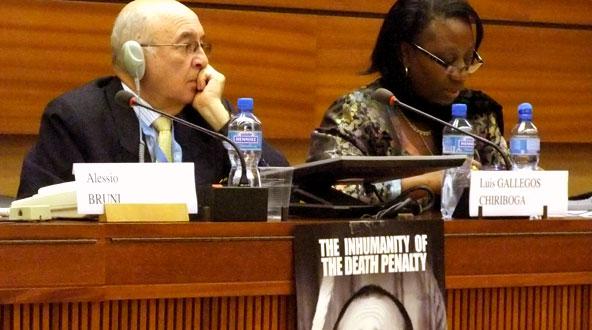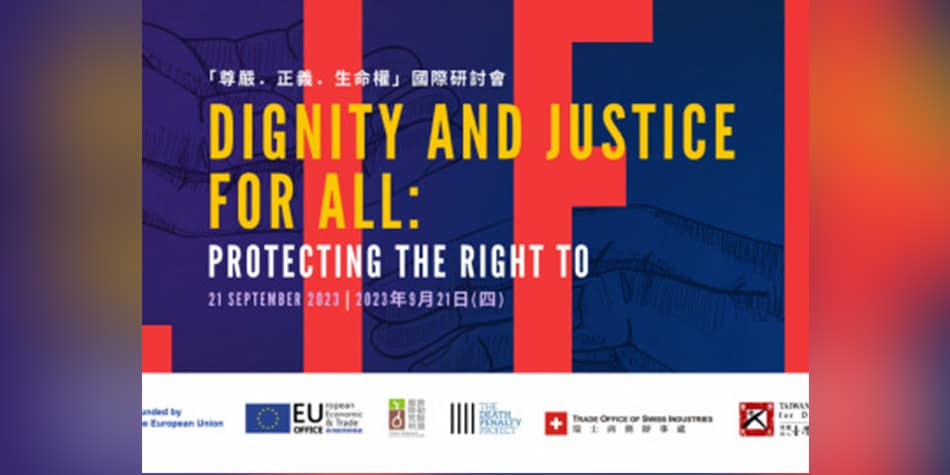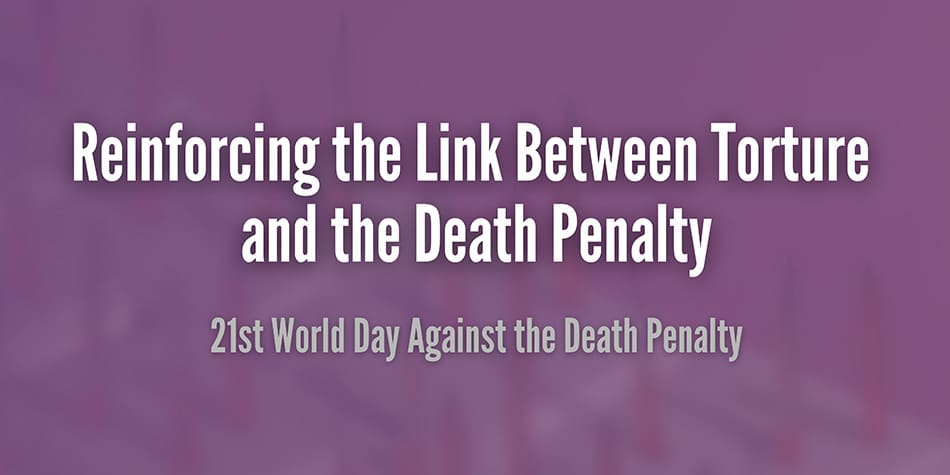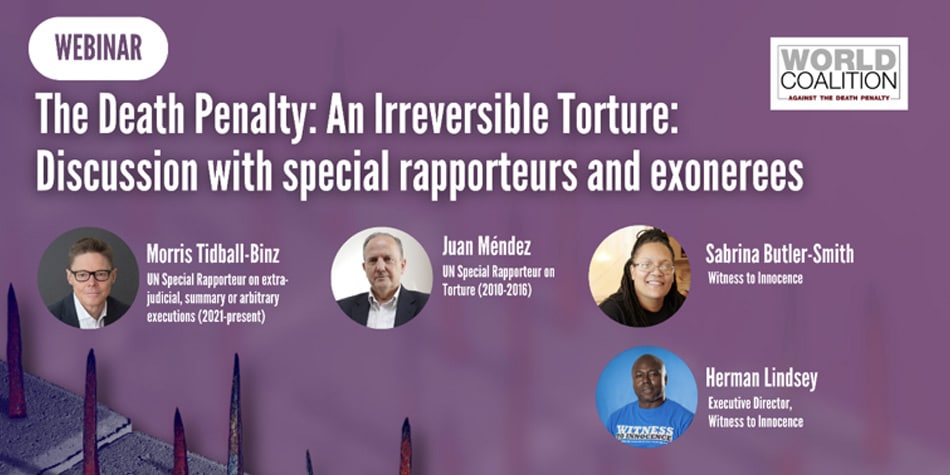
The great abolitionist event comes to the UN
International standards
The 9th World Day Against the Death Penalty was celebrated at the UN Palais des Nations in Geneva at a debate on international jurisprudence as regards the death penalty and cruel, inhuman or degrading punishment or treatment, bringing together ten experts from the UN and regional human rights organisations.
The World Day also saw the transfer of the International Commission Against the Death Penalty from Madrid to Geneva with the official opening ceremony, a film/debate evening, business meetings and deliberations about the death penalty by experts.
The death penalty as a cruel, inhuman and degrading treatment
Federico Mayor Zaragoza, Chairman of the International Commission Against the Death Penalty and former Director General of UNESCO, introduced the session by declaring that the death penalty was “the ultimate denial of human rights” because it violates both the right to life and the right not to be subjected to cruel, inhuman and degrading punishment and treatment.
Sylvie Kayitesi Zaïnabo, Chair of the Death Penalty Working Group at the African Commission on Human and Peoples’ Rights, spoke of the role of judges in the evolution of African jurisprudence: “Through legal decisions, we have noted an abolitionist trend which began in South Africa in 1995 and has been slowly followed by Malawi and Kenya”.
Methods of execution and the rule of “least possible sufferance”
Zaved Mahmoud, from the Office of the High Commissioner for Human Rights, recalled the various recommendations of the UN Human Rights Committee, which reduced the field of possible execution methods, and the conclusion of the Special Rapporteur Against Torture in 2009: “If the amputation of limbs is considered to be a cruel, inhuman and degrading punishment, how can decapitation be considered otherwise? If even comparatively lenient forms of corporal punishment, such as ten strikes of the cane on the buttocks, are absolutely forbidden in international human rights law, how can hanging, the electric chair, firing squads and other forms of capital punishment still be justified in the same provisions?”
Anna Austin, Division Chief of the European Court of Human Rights, returned to the history of decisions made by the European Court which, in 2010, reached the conclusion that the death penalty was in itself inhuman, whatever the method of execution.
The Court went so far as to consider that the mear imposition and even the fear that the death penalty might be imposed constituted inhuman treatment.
Conditions of detention and the phenomenon of death row
Elizabeth Abi Mershed, the Deputy Executive Secretary of the Inter-American Commission on Human Rights, raised the evolution of the American system since the 1990s. She emphasised the importance of interaction between international, regional and national instances. The Inter-American Court has, for example, made use of African jurisprudence, decisions of the British Privy Council and the European Court.
The death penalty is not prohibited in the American Convention on Human Rights but jurisprudence going back fifteen years has considerably restricted its application through the violation of other rights such as extradition, consular rights and the rights of a child in order to move towards gradual abolition. However, the Convention prohibits reintroduction of this punishment by a State which is already abolitionist.
Luis Gallegos and Alessio Bruni, members of the Committee Against Torture, returned to the definition of torture with regard to Article 1 of the Convention Against Torture which excludes the death penalty. They explained that, according to the Committee, the death penalty constituted a cruel, inhuman and degrading treatment as per Article 16 of the Convention.
Christof Heyns, Special Rapporteur on extrajudicial, arbitrary and summary executions, concluded the debate by declaring that the concept of cruel, inhuman and degrading treatment was subject to interpretation and depended on the context. The evolution of international jurisprudence over fifteen years had created a momentum which has put into motion the way of thinking about the death penalty in international law.
The legal field for application of the death penalty in a way in which human rights are not violated is shrinking away to nothing and soon there will be no more legal justification for tolerating this inhuman punishment.
The event was organised by the World Coalition Against the Death Penalty with the support of the Permanent Missions of Belgium and Chile to the UN in Geneva.







